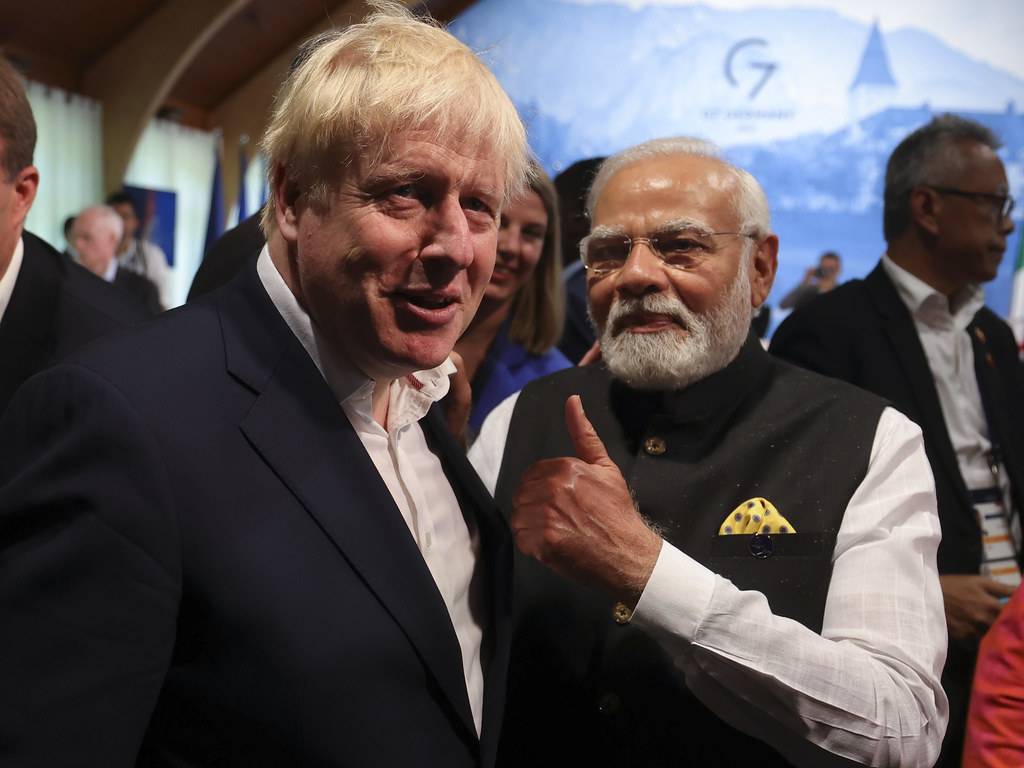Over the past few months, India has concluded trade deals with the United Arab Emirates and Australia…reports Asian Lite News
The UK and India said on Monday they will hold the fifth round of talks for a free trade agreement in New Delhi in July, with leaders of the two countries having already set a target for concluding the negotiations by October.
The two sides concluded the fourth round of talks for the India-UK Free Trade Agreement (FTA) on June 24, according to a joint outcome statement. During the fourth round of negotiations, a “detailed draft treaty text was advanced across the majority of chapters”, the statement said.
“Technical experts from both sides came together for discussions in 71 separate sessions covering 20 policy areas,” the statement added.
The fourth round of technical talks was held in a hybrid format, with some teams meeting in London and a majority of the officials joining virtually. “The fifth round of negotiations is due to take place in July 2022 in New Delhi,” the statement said.
At their summit in New Delhi in April, Prime Minister Narendra Modi and his UK counterpart Boris Johnson said they expected a “majority of talks on a comprehensive and balanced free trade agreement” to be concluded by the end of October. Johnson said the FTA could double trade and investment by the end of the decade.
Over the past few months, India has concluded trade deals with the United Arab Emirates and Australia.
Johnson acknowledged at the time that there were difficult issues, such as tariffs on whisky, but said there is also a “massive push” from both governments to get the FTA done.
The Confederation of Indian Industry (CII) and its UK counterpart, the Confederation of British Industry (CBI), have formed the UK-India Business Commission to increase cross-industry collaboration and to push the trade deal over the line.
The UK’s renewable sector is eyeing a greater role in India’s transition to clean energy under the proposed FTA. India has committed to produce 50% of its energy from renewable sources by 2030, and reduced tariffs on green exports, such as solar and onshore and offshore wind, could open new opportunities in India.
ALSO READ-Poonawalla warns about vaccine hesitancy

Leave a Reply